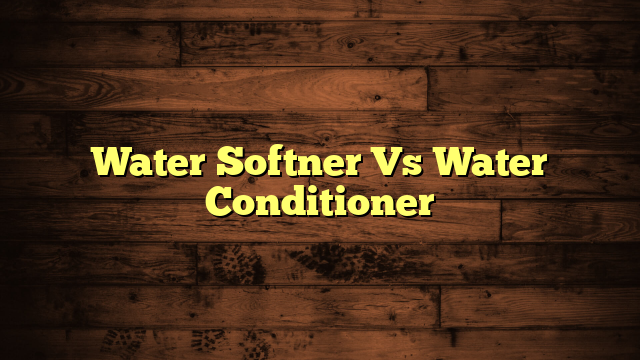Do I Need a Water Filter After Water Softner?
You might think that installing a water softener is enough to guarantee your water quality, but that's not necessarily the case. While a softener tackles hard minerals like calcium and magnesium, it doesn't filter out harmful contaminants such as chlorine or heavy metals. This raises an important question: do you really need a water filter after a softener? Understanding the interplay between these systems can lead to better water safety and taste, but the answer might not be as straightforward as you think. What are the implications for your health and home?
Key Takeaways
- Water softeners remove hard minerals but do not eliminate harmful contaminants like chlorine, heavy metals, and microorganisms from your water.
- A water filter is necessary to improve water taste and odor, addressing issues that water softeners do not resolve.
- Common contaminants such as lead, bacteria, and pesticides require additional filtration for safe drinking water and health protection.
- Using both a water softener and a filter ensures comprehensive water treatment, improving both quality and safety for consumption and household use.
- Regular maintenance of both systems is crucial to ensure optimal performance and longevity of both the water softener and the filter.
Understanding Water Softening
Understanding water softening is essential for anyone considering a water treatment system. A water softener is designed to remove minerals like calcium and magnesium, which cause hard water. The water softening process typically involves ion exchange, where these hard minerals are replaced with sodium ions. This simple yet effective method can lead to significant water softener benefits.
By softening your water, you'll notice improved soap lathering, which means you'll need less detergent and can save money on cleaning products. Soft water also helps protect your plumbing and appliances from scale buildup, extending their lifespan.
Furthermore, you'll experience softer skin and hair after bathing, as the absence of harsh minerals makes a noticeable difference.
Moreover, softened water can improve the efficiency of water heaters, reducing energy consumption and costs. You might also find that your laundry comes out cleaner and brighter when using soft water.
With these advantages, it's clear that investing in a water softener can greatly enhance your daily life. Understanding how this system works and its benefits can help you make informed decisions about your water treatment options.
Limitations of Water Softeners
While water softeners effectively remove certain minerals, they've their limitations.
You might notice taste and odor issues in your water that a softener won't address, and there are specific contaminants it doesn't filter out.
Understanding these gaps can help you decide if you need additional water filtration solutions.
Mineral Removal Efficiency
Water softeners excel at removing calcium and magnesium, but they fall short when it comes to eliminating other harmful minerals and contaminants. While they're effective at reducing hardness, water softeners don't tackle various mineral types such as iron, lead, or chlorine. These minerals can negatively affect your water quality and overall health, making it essential to understand their limitations.
The removal methods used in water softeners primarily involve ion exchange, which swaps hard minerals for sodium ions. However, this process doesn't filter out everything. For example, if your water has high levels of heavy metals or sediments, a water softener won't be able to address these issues.
If you're concerned about contaminants, consider complementary filtration systems like activated carbon filters or reverse osmosis units. These systems can effectively target and remove specific harmful minerals, ensuring your water isn't just soft, but also safe and clean for consumption.
Taste and Odor Issues
Taste and odor can greatly impact your enjoyment of drinking water, and a water softener isn't designed to improve these aspects.
While water softeners effectively remove minerals like calcium and magnesium, they don't address the taste preferences or odor sources that may affect your water quality.
You might notice that your water still has an unpleasant taste or smell, often caused by chlorine, sediment, or organic materials. These issues can stem from your municipal supply or even your plumbing system.
If you find yourself turning to bottled water or adding flavor enhancers to mask unpleasant tastes, it's a good sign that your water softener alone isn't enough.
For many homeowners, installing a separate water filter is essential for tackling taste and odor problems.
A quality water filter can target specific contaminants and improve the overall flavor and smell of your water, giving you the rejuvenating experience you desire.
So, if you care about enjoying your water, consider investing in a filtration system alongside your water softener.
This combination can guarantee that you're not just softening your water but also enhancing its overall quality for drinking and cooking.
Contaminant Types Not Filtered
One major limitation of water softeners is their inability to filter out various harmful contaminants. While they considerably improve water quality by reducing hardness, they don't address other issues that might be lurking in your water supply.
Understanding what they can't filter is essential for your overall health and safety. Here are four common contaminants that water softeners typically miss:
- Chlorine: Often used in municipal water systems, it can affect taste and smell.
- Heavy Metals: Lead, arsenic, and mercury can be present, depending on your plumbing and local sources.
- Microorganisms: Bacteria and viruses mightn't be eliminated, posing health risks.
- Sediments: Dirt, rust, and silt can still make their way into your drinking water, affecting its clarity.
Because of these limitations, your water's filtration efficiency may not be sufficient for safe consumption.
This is why many homeowners choose to install additional water filters after their softeners. Ensuring the highest water quality involves considering a thorough filtration system that addresses both hardness and harmful contaminants.
Common Contaminants in Water
When it comes to your water supply, it's important to know that contaminants can still lurk even after a water softener does its job.
Common types of water contaminants include bacteria, heavy metals, and chemicals, all of which can pose serious health risks.
Understanding these contaminants and their impacts on your health can help you make informed decisions about whether you need additional filtration.
Types of Water Contaminants
Water can harbor a variety of contaminants that affect its quality and safety. Understanding these contaminants is essential for ensuring you have clean, safe water. Here are some common types you should be aware of:
- Waterborne Pathogens: Bacteria, viruses, and parasites can find their way into your water supply, often from contaminated sources. These pathogens pose significant health risks.
- Chemical Pollutants: Industrial waste, pesticides, and heavy metals can leach into water systems, affecting both taste and safety. These chemicals mightn't be visible but can have harmful effects over time.
- Sediments: Particles from soil erosion or construction sites can cloud your water. While they mightn't seem harmful, sediments can carry other contaminants.
- Chlorine and Chloramines: Used in water treatment, these chemicals help disinfect but can create unpleasant tastes and odors, prompting many to seek additional filtration.
Understanding these types of contaminants can help you make informed decisions about water treatment options.
While a water softener improves hardness, a water filter can address these contaminants, ensuring your water is truly safe to drink.
Health Impacts of Contaminants
Contaminants in your water can have serious health implications, affecting everything from your digestive system to your overall well-being. When it comes to health risks, exposure to certain contaminants—like lead, bacteria, and pesticides—can lead to both short-term and long-term health issues.
For instance, ingesting lead can result in cognitive impairments, especially in children, while bacteria can cause gastrointestinal distress.
Contaminant exposure isn't just a concern for those with compromised immune systems; even healthy individuals can experience negative effects. For example, high levels of nitrates found in drinking water can lead to methemoglobinemia, or "blue baby syndrome," affecting infants.
Additionally, long-term exposure to pesticides can increase the risk of chronic conditions, including cancer.
It's essential to be proactive about the quality of your water. While a water softener may help with hard water issues, it doesn't remove harmful contaminants.
To safeguard your health, consider installing a reliable water filter. This additional measure can greatly reduce your risk of exposure to dangerous substances, ensuring you're drinking clean, safe water every day.
Benefits of Using a Water Filter
Using a water filter after a water softener can greatly enhance the quality of your drinking water. While water softeners remove hard minerals, they don't filter out harmful contaminants. That's where a water filter comes in, providing essential filtration benefits.
Here are four key advantages you'll enjoy by using a water filter:
- Improved Taste: Filters can remove chlorine, sediment, and other impurities that affect the flavor of your water, making it more enjoyable to drink.
- Enhanced Safety: A water filter can reduce harmful contaminants like lead, pesticides, and bacteria, ensuring that your drinking water is safe for you and your family.
- Better Health: Consuming clean water contributes to overall health. With fewer impurities, you'll avoid potential health issues linked to contaminated water.
- Cost-Effective: Investing in a water filter can save you money on bottled water while reducing plastic waste, benefiting both your wallet and the environment.
Types of Water Filters
When it comes to choosing a water filter, you have several options to evaluate, each designed to meet specific needs. One popular choice is the reverse osmosis filter. This system uses a semi-permeable membrane to remove impurities from your water, including contaminants like heavy metals, chlorine, and even some microorganisms.
If you're looking for highly purified water, reverse osmosis might be the way to go.
Another option is the activated carbon filter. These filters are great for improving taste and odor by trapping chlorine and other organic compounds.
They're typically more affordable and easier to install than reverse osmosis systems, making them a good choice for those seeking a simple solution.
You may also encounter sediment filters, which remove larger particles like dirt and rust, and UV filters that use ultraviolet light to kill bacteria and viruses.
Each type of filter has its strengths, depending on what contaminants you're dealing with and your budget. Consequently, it's crucial to assess your water quality and personal preferences before making a decision.
Compatibility of Filters and Softeners
Choosing the right combination of water filter and softener can greatly impact your water quality. Understanding softener compatibility and filter efficiency is key to guaranteeing your system works harmoniously. Here are four essential points to take into account:
- Type of Softener: Different softeners—ion exchange, salt-free, or reverse osmosis—may interact differently with filters. Verify your filter's design complements your softener's method.
- Flow Rate: Check the flow rate of both your filter and softener. High flow rates can affect filter efficiency, leading to reduced water quality if they aren't compatible.
- Contaminants: Each filter targets specific contaminants. Make sure the filter you select effectively removes the impurities that your softener may not address, enhancing overall water quality.
- Installation: The placement of your water filter and softener matters. Install them in a way that maximizes their compatibility and efficiency, guaranteeing you get the best output for your needs.
Maintenance and Care for Systems
Proper maintenance and care for your water filter and softener system is crucial for guaranteeing peak performance and longevity. Regular upkeep helps you avoid costly repairs and enhances the quality of your water.
Start by checking the salt levels in your water softener monthly. If they're low, refill them to maintain ideal performance. It's also essential to clean the brine tank at least once a year to prevent buildup that can affect efficiency.
For your water filter, replace the filter cartridges as recommended by the manufacturer—usually every six months to a year, depending on usage. This simple step greatly contributes to system longevity.
Moreover, inspect the system for leaks or unusual noises, as early detection can save you from more complex issues later on.
Keep a maintenance log to track when you last performed each task. This not only helps you stay organized but also guarantees you don't overlook important maintenance tips.
Making the Right Choice
Deciding whether you need a water filter after installing a water softener is vital for ensuring the quality of your drinking water.
While a water softener removes hardness, it doesn't eliminate contaminants like chlorine, lead, or bacteria. To make the right choice, consider these factors:
- Water Quality: Get your water tested to identify specific contaminants. Knowing what's in your water is vital.
- Filtration Systems: Research different filtration systems that can address the contaminants found in your water. Some systems target specific issues better than others.
- Usage: Consider how you use your water. If you mainly need it for drinking and cooking, a filter might be necessary. However, if you're primarily using it for bathing and cleaning, a softener alone may suffice.
- Budget: Weigh the cost of a filtration system against the health benefits of cleaner water. Sometimes, investing in a good filter is worth it for peace of mind.
Ultimately, understanding your water's unique needs will guide you to the right filtration solution, ensuring you and your family enjoy the best water quality possible.
Frequently Asked Questions
Can I Install a Water Filter and Softener Together?
Yes, you can install a water filter and softener together. For ideal water quality, follow installation tips like placing the softener first, ensuring proper plumbing connections, and maintaining both systems regularly for best results.
Will a Water Filter Remove Chlorine From Softened Water?
Using a water filter's like having a superhero for your softened water. It effectively tackles chlorine removal, ensuring your water's not just soft, but also fresh and clean, making it safer and more enjoyable to drink.
How Often Should I Replace My Water Filter After Softening?
You should replace your water filter every six months for ideal filter maintenance. Regular changes extend the softener lifespan, ensuring you enjoy clean, great-tasting water while efficiently removing impurities that may affect your drinking supply.
Does Softening Water Affect the Taste of Filtered Water?
Softened water can affect water taste because the sodium used in the softening process might alter it. You might notice a difference when drinking filtered water that's been softened compared to regular tap water.
Can I Use a Reverse Osmosis System After a Water Softener?
Yes, you can use a reverse osmosis system after a water softener. The compatibility enhances water quality, providing reverse osmosis benefits like reduced contaminants and improved taste, ensuring you enjoy cleaner, healthier drinking water.
Conclusion
In summary, while a water softener is a great first step in improving your water quality, it's not enough on its own. You still face potential contaminants lurking in your tap water, waiting to compromise your health and taste. By adding a water filter, you guarantee that every drop you drink is safe, invigorating, and free from harmful impurities. So, why settle for less? Make the smart choice and invest in both systems for complete peace of mind.







